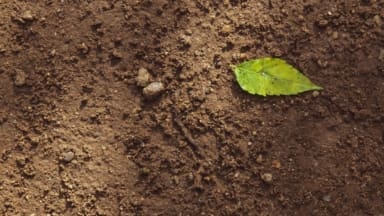
In a controlled environment, researchers at Flinders University in Australia recorded rapid acceleration in soil fungi growth when sounds are played.
Published on biorxiv, the study entitled “Sonic restoration: Acoustic stimulation enhances soil fungal biomass and activity of plant growth-promoting fungi” showcases the potential for ‘eco-acoustics’ as a new field in supporting native ecosystem restoration, fresh food production and composting industries. After revegetation, it can take decades for soil microbes to fully recover so the potential to speed up the process, represents an exciting development.
Dr. Jake Robinson, microbial ecologist at Flinders University said: “More than 75% of the world’s soils are degraded, so we need to take radical steps to reverse the trend and start restoring biodiversity. This research surprised us when one common plant growth-promoting fungi increased its initial number of spore cells biomass by almost five times compared to the control group where sound waves were at ambient levels. Our study also highlights the importance of soundscapes in nature. We can now listen to the sounds that tiny animals as an indicator of soil health, but we might also be able to apply sound to improve soil health.”
For the study, teabags were buried in soundproof boxes to enable the growth of biomass as the organic matter degraded and were subsequently exposed to ‘loud’ high-pitched monotone sound waves (80 decibels at 8 kHz frequency) for up to eight hours a day for 14 days. The teabags in the control sample produced less fungi growth when exposed to only 30 decibels of noise.
“Our research into the potential of stimulating soil microbial activity harnesses other innovative possibilities to help restore nature,” said Associate Professor Martin Breed, Ecology/Organismal Biology at Flinders University researchers.
